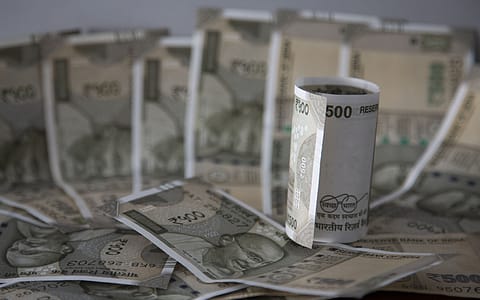Rising rates to improve margins for Indian banks: Fitch
Indian banks’ net interest margins are expected to widen by 20 bps-30 bps in the near term, based on the assumption that the repo rate will reach 5.9% by December 2022 and 6.15% by the end of 2023.

Rising interest rates will be positive for Indian banks’ margins, especially in the early stages of the rising-rate cycle, says Fitch Ratings. The agency, however, warned that if inflation remains more persistent than forecast, it would force the Reserve Bank of India (RBI) to raise rates by higher-than-expected.
“Indian banks’ net interest margins (NIM) to widen by 20 basis points (bps) to 30 bps in the near term, based on its assumption that the repo rate will reach 5.9% by December 2022 and 6.15% by end-2023,” says Duncan Innes-Ker, Senior Director.
The central bank, in its last policy meeting in August, hiked the interest rate for the third time since the beginning of the current financial year 2022-23 (FY23). It raised its policy repo rate by 50bps to 5.40%, taking it to pre-pandemic levels, to ease inflationary pressure on the economy. Besides, it hiked the rate by a cumulative of 90 bps in May and June as inflation remained above the upper tolerance level of 6% through this period.
As per the Fitch report, nearly 77% of the banks’ loan book applies floating rates linked to external benchmarks or banks' marginal cost of funding, so the transmission into higher interest income should be reasonably swift. “Deposits account for 87% of total funding, of which nearly 43% is low-cost. This should give banks the flexibility to manage funding costs over a longer timeframe, supporting the increase in NIM,” it says.
The agency expects loan growth in the financial year to March 2023 (FY23) to be higher than FY22 yet lag nominal GDP growth, which should alleviate some pressure on banks to raise deposit rates to fund loan growth.
The report says that Indian banks' comparatively large debt securities portfolios will be subject to mark-to-market losses as bond yields rise, dampening the revenue upside from higher interest rates. However, regulatory measures to cushion the impact, such as permitting banks to reclassify bonds or allowing revaluation losses to be amortised over a longer period, cannot be ruled out.
Asset-quality risks should be moderate for most banks, but interest-rate hikes will test banks’ loan underwriting quality, particularly for micro, small and medium-sized enterprises. Any rise in bank credit costs stemming from asset-quality deterioration could be amplified by the unwinding of regulatory forbearance starting FY23.
Recommended Stories
The report cautioned that risks to Indian banks could rise if inflation proves more persistent than forecasted, forcing the authorities to raise rates by more than expected.
Retail inflation, measured via Consumer Price Index (CPI), eased to 6.71% in July, from 7.01% in June and 7.04% in May, due to a drop in international crude as well as other commodity prices. However, retail inflation is likely to buck the three-month downward trend in August due to erratic monsoon patterns and higher food inflation, which accounts for nearly half the consumer price index (CPI) basket. It is expected to rise to an annual 6.90% in August, according to a Reuters poll of about 45 economists.